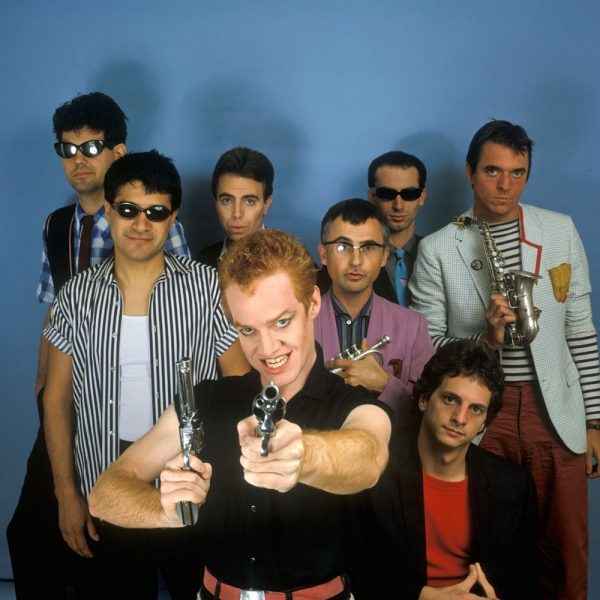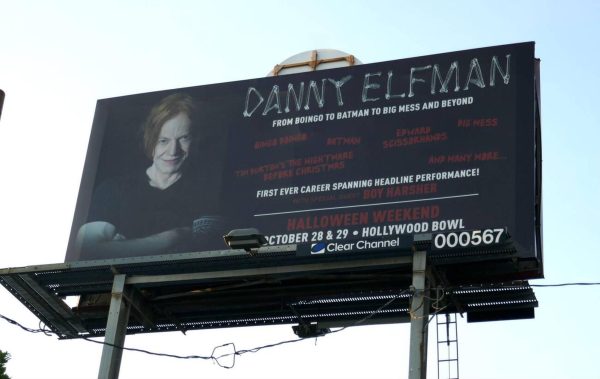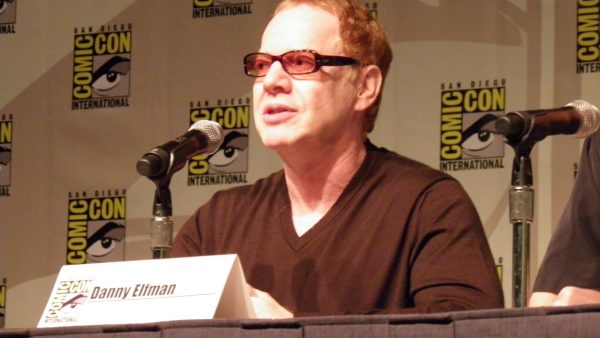All dressed up with nowhere to go? Walking with a dead man over your shoulder? October is the month of spooks and scares, with fall preying around the corner and Halloween serving as a capstone for the horrors abound. But looking for music for the season, everything you hear from dead men’s parties to weird science seems to loop back on one person: Danny Elfman.
Even looking at the soundtracks for Halloween movies like Corpse Bride, The Nightmare before Christmas, Charlie and the Chocolate Factory, his name always comes around.
So who was he, and what was Oingo Boingo?

1972, Los Angeles, California. A group named the Mystic Knights of the Oingo Boingo is taking the underground music scene by storm. Led by Danny Elfman and organized by his older brother Richard, it looked more like a surreal performance art group than a band. Members changed costumes, interacted with props and each played three instruments to the tunes of Parisian cafes and Harlem cotton clubs of the 1930s.
The troupe would disband with Richard creating a film called Forbidden Zone, which Danny would compose the soundtrack for. In this stir of musical creativity, Danny would hear of a British musical movement named ska. Describing it as “double time reggae,” he got the inspiration right then and there to start a rock band with the troupe’s members.

Compared to the theatrics of the Mystic Knights, the workload of their new band was far lighter. No more monkey suits and set pieces; it was just the band members, their instruments and their sweat whenever they performed on stage.
After releasing a short, self–financed release, an LA radio station named KROQ picked up their tracks and started to build the band a small but loyal following. Their popularity would snowball over the next few years into their first and most famous albums under A&M Records – Only A Lad, Nothing To Fear, Good For Your Soul – and their first nation-wide tours. The band’s style was highlighted by musical un-orthodoxy, using a wealth of synths, sequencers, and changes in time signature and key to create an unusual confluence of musical styles.
At the same time, Danny would continue his composition work, with his big break coming with composing for Tim Burton’s Pee-Wee Herman’s Big Adventure. He recorded a demo for each part of an orchestra using cheap sample synths, sent it out for approval, and then rewrote it on paper. 16 hours a day, seven days a week. All the while running Oingo Boingo for a decade.

While composing for Midnight Run, Danny had to give the band half of his salary so he could take time off and write the score. For another film, Batman (1989), he had to run in and out of an airplane bathroom with a tape recorder detailing every part for the main theme before his ideas would be erased by hearing another song.
This very hectic way of writing would continue after Danny began to work with other composers like Sam Raimi. Oingo Boingo would rebrand and disband in 1995, after winning an Emmy for the Desperate Housewives theme and nominated for two Oscars. But through all this controlled chaos, Danny would make some of the most distinct music not only for Halloween but for the genre of new wave rock in its heyday. So whether you hear fantastical compositions or brash rock tunes, just know one man and his strange creative spirit lie behind it.
Stay weird, Forest Hills.